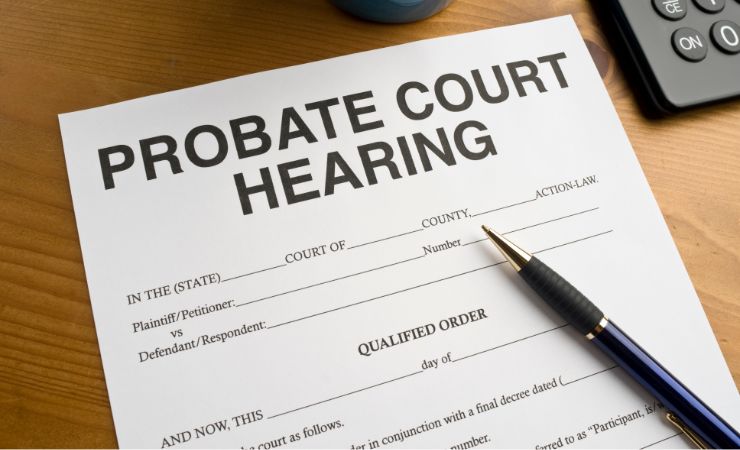Request your Consultation
Posted on January 19, 2023 in probate
Probate is a legal process that every individual encounters at some point in their lifetime. When a loved one dies, they most often have some sort of will, trust, or estate plan in place to follow after their passing. Probate works to validate these documents and carry out the final wishes of your loved one before closing their estate. However, because probate can deal with an individual’s entire estate, it can be a long and complex process for many people who must go through it.
Probate is the process of identifying, assessing, and carrying out the final recorded wishes of an individual who has passed away. It is done by the state court to ensure all documents are legally valid and that the estate is administered properly. When an individual does not leave a will or other document detailing their personal wishes, probate helps by taking over the estate administration process and distributing property according to Nevada inheritance law. In Nevada, if the estate of the individual who passed was valued at over $20,000, or if any real estate property is involved, then the probate process is legally required.
If there is a will, the average probate process generally follows a standard procedure:
To begin the process of settling an estate, a petition for probate, along with a request for a personal representative to carry out the estate plan, need to be sent to the local court. If the deceased left a will, they most likely detailed who they wanted their executor of the estate to be, and that person can request to be appointed. It is also important to make sure that the petition for probate is filed in the county where the deceased was living at the time.
After the petition for probate has been approved and a personal representative, who is oftentimes an estate planning or administration attorney, has been appointed, the probate process will begin. The first step of probate is presenting any legal documents, such as a will, to the court to be validated and approved. From there, all beneficiaries that were listed must be notified of the individual’s death and of their beneficiary status. All creditors must also be notified so that they have enough time to settle any outstanding debts.

Once all important parties have been notified of the beginning of probate, all assets and property within the estate must be identified and valued. Cars, real estate, bank accounts, retirement funds, etc., will all be counted and properly valued before they can be distributed. The representative administering the estate may have to consult various appraisers to make sure that all assets have received a proper value.
Before an estate can be distributed, all outstanding debts, taxes, and expenses must be paid off. If there are creditors who are filing claims, those cases must be settled before the probate process can continue. The appointed estate administrator will work to handle all financial responsibilities, such as debts and taxes, to help keep the process moving.
Once all administrative and financial matters have been handled, the process of distributing assets and property to the listed beneficiaries can finally begin. If there was a will involved, the estate administrator will pass on property according to the individual’s last wishes as detailed in their will.
After all debts are settled, all taxes are paid, and each asset is divided to the proper heir, the probate process will come to an end, and the estate will be closed. From beginning to end, the probate process can take anywhere from a few months to over a year to complete.
A: Overall, probate can be a prolonged process, but it should not become too complicated if you have the right legal help. Working with an experienced attorney can make the probate process much easier on you and everyone else involved. They are experts in probate law and can determine what to do and how to avoid any issues that may arise.
A: While in most cases probate will be required to administer an estate, there are some circumstances in which probate can be skipped, including if assets are in a trust or if the estate is worth less than $20,000 and involves no real estate. An estate planning attorney can help you determine whether your estate will require probate.
A: While you do not legally need an attorney to go through probate, most legal and state representatives will recommend that you find an estate administration attorney who can help you throughout the entire process. They can follow the proper procedures to ensure that the process is completed smoothly and fairly.
A: An executor of the estate, otherwise referred to as the administrator of the estate, is the individual who is appointed to carry out the final wishes of the deceased individual. This person makes sure that the estate plan is followed accordingly. They are also in charge of distributing all assets left behind.
A: If your loved one passes away without a will or legal documentation of their final wishes, they will be considered to have died “intestate.” The probate and estate administration processes will be handed over to the local court. The court will have all outstanding debts paid and administer assets according to default inheritance law.
Here at Ken R. Ashworth & Associates, we understand just how intimidating probate can seem. That is why we offer a variety of legal services to assist with estate planning, estate administration, and navigating through probate here in Nevada. Whether you just lost a loved one, have become the executor of an estate, or need help carrying out the probate process, our team is prepared to assist you with your unique needs. For more information on our services at Ken R. Ashworth & Associates, contact us today to schedule a consultation with our team.